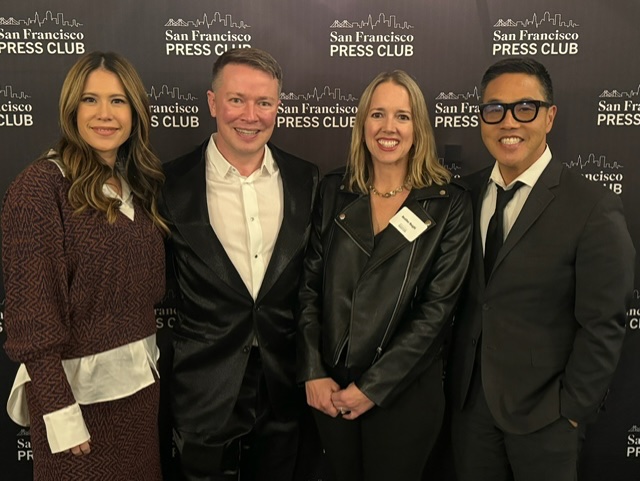 When it comes to today’s technology, it’s easy for a product to get lost in the crowd.
When it comes to today’s technology, it’s easy for a product to get lost in the crowd.
It seems like every business is touting how their service comes with the “latest and greatest” in machine learning, artificial intelligence, and autonomous capabilities. In order to separate your business from the clutter, product positioning should become a critical component of your marketing strategy. However, it’s common for entrepreneurs in this space to focus their energy on exciting features, forgetting they need the approval of their target audience.
It’s easy to just paint a pretty picture of your product, but don’t forget to use the powerful tool of storytelling. Only then will you set your product up for media success.
Start with a strategy
CarVi, an advanced driver assistance system, needed a solid strategy when developing their new SafeCheck program.
According to Dinesh C, chief creative officer of CarVi, drivers who pledge to drive safely should be rewarded, which is why CarVi launched SafeCheck. By choosing to install the CarVi Smart Camera, which has safety features proven to lower accidents, CarVi will pay for the customer’s insurance.
“Reports have shown that many drivers want new safety technology in the car, and many new cars do have such a safety camera,” said Dinesh. “The program is simple — drive your car and drive safe with CarVi, and you pay a lower premium.”
Understanding the problem when competition’s tough
CarVi also learned from experience that it’s critical to understand the problem you are trying to solve, and, if there is an actual problem, how your technology can fix it.
After understanding the problem, CarVi was able to set their program apart from other market technology leaders and offer technology that no one else can, said Dinesh.
It wasn’t by choice that CarVi differentiated their technology for others. According to Dinesh, they were offering something that didn’t exist in the market yet. While there are various forms of vision-based technology or vehicle tracking devices on the market already, Dinesh said this is technology that’s too costly or too complicated for drivers to install.
This type of technology isn’t actually solving the real problem either, said Dinesh. According to an IIHS report, there were 32,166 fatal motor vehicle crashes in the United States alone, in which 35,092 deaths occurred. These are the real problems, according to Dinesh, and that’s why they are using sensor and telematics technology to reduce accidents and save lives.
“For CarVi, this is the mission, and we realized that the only way to be successful in achieving our mission is to offer the most affordable technology that works for all cars in reducing accidents,” said Dinesh.
Position the product and tell its story
CarVi also positioned itself so its products align with the future of self-driving cars. According to Dinesh, SafeCheck and the CarVi Smart Camera could eventually work in vehicles with sensors that allow cars to read the environment and react based on the real-time situation.
“CarVi understands driving patterns and can even provide coaching for those whom we believe might have a higher risk of accidents,” said Dinesh. “What this means is that by collecting your own driving pattern, CarVi can eventually work with self-driving cars by providing the type of driving experience that you desire.”
The best advice Dinesh would give to entrepreneurs trying to position their product for the media is, “Come up with the product’s story, visualize it, and then tell it in a very powerful way.”
This article first appeared in Adweek.



